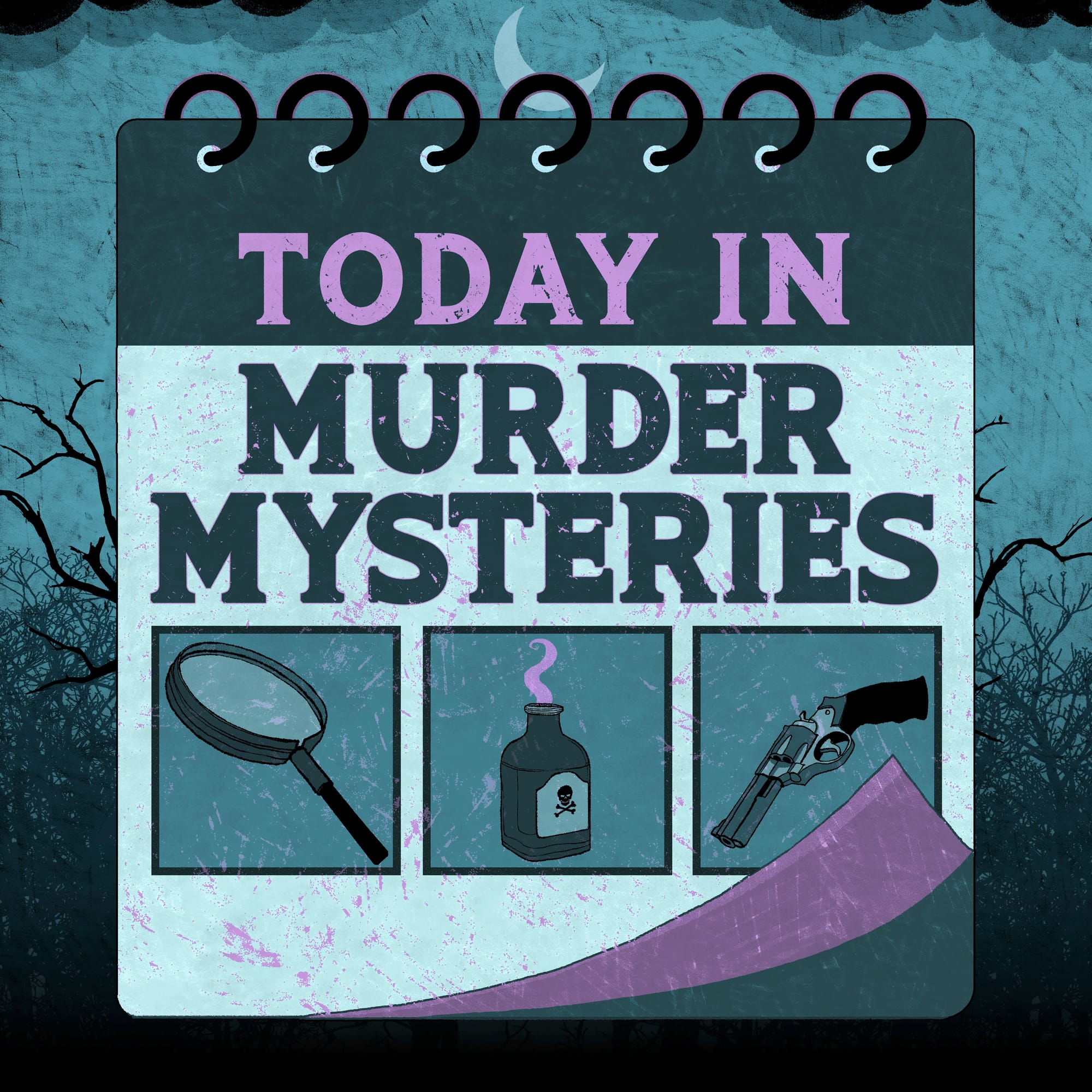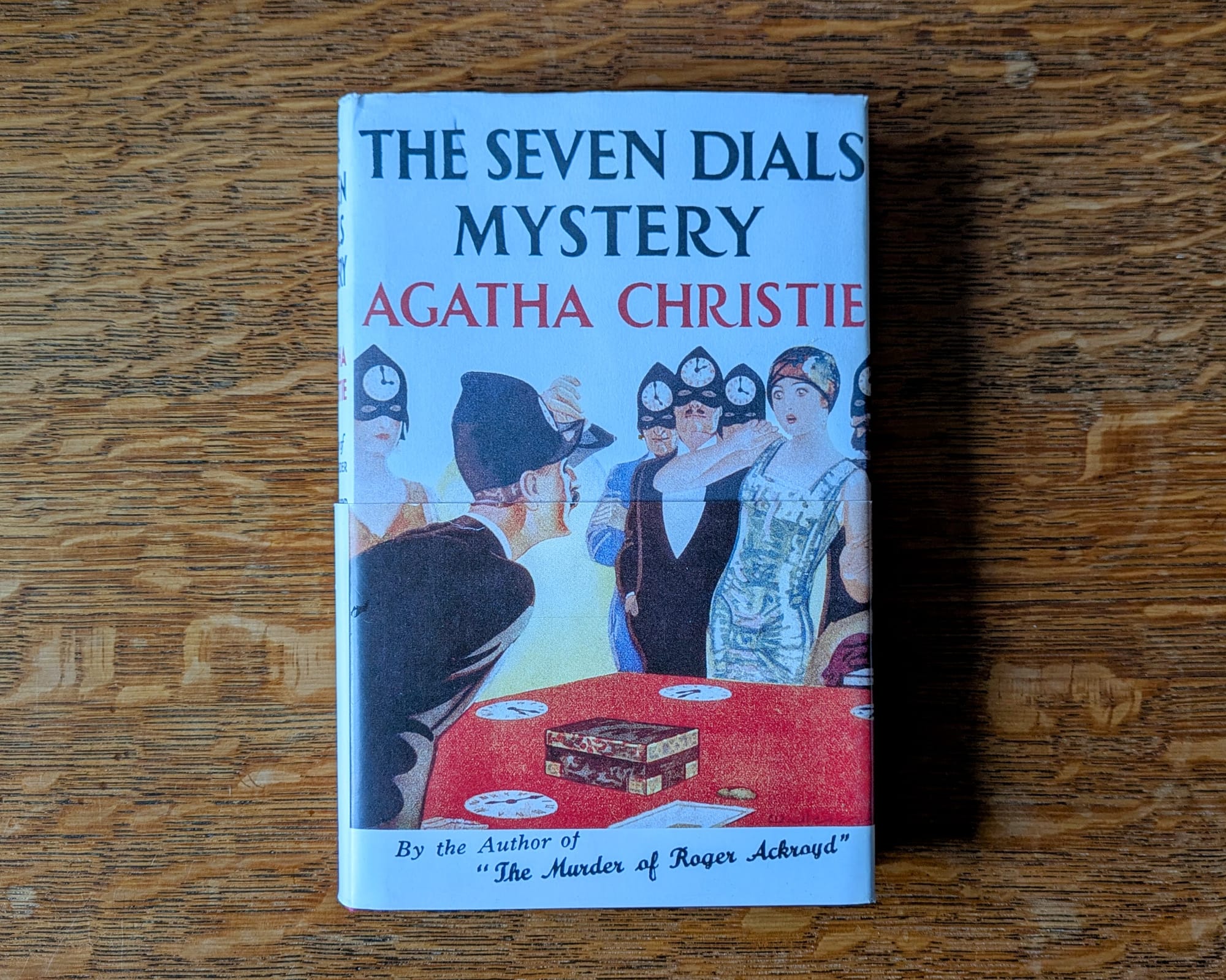The Servant Problem (And A New Show)
Dear listeners,
Part of what makes reading classic murder mysteries so enjoyable is the glimpse it offers into a world that is so unlike the one we inhabit today. Nothing makes the interwar "golden age" of detective fiction feel more alien to me than the ubiquity of servants. Butlers, nannies, maids, cooks, gardeners — these are stock figures of the genre, all now long vanished from contemporary domestic life.
Servants are very useful to the detective novelist as witnesses, since their encyclopaedic knowledge of their household and employers makes any anomaly immediately stand out to them. They are ubiquitously present in the house, too, meaning that they are frequently used to provide alibis or create the "impossible" conditions of a crime. Lest we forget, in Death and the Dancing Footman Ngaio Marsh had said footman doing the popular 1930s dance "Hands, Knees, Boomps-a-Daisy" in the hall in order to establish that nobody could have entered a room to commit a murder.
In fact, making the servant the culprit worked so well that S.S. Van Dine banned it in his "Twenty Rules for Writing Detective Stories", published in 1928. He wrote:
Servants – such as butlers, footmen, valets, game-keepers, cooks, and the like – must not be chosen by the author as the culprit... It is a too easy solution. It is unsatisfactory, and makes the reader feel that his time has been wasted.
Writers mostly followed this dictum, although they did continue to weave servants into their fiction in other interesting ways. What has intrigued me the most over my years of reading in this genre, though, is the way in which detective fiction reflects the changing nature of the servant profession over the first half of the twentieth century. Agatha Christie was at the forefront of this, documenting the so-called "servant problem" through her fiction. From the elderly and loyal parlourmaid Dorcas in The Mysterious Affair at Styles to the extreme competence of Lucy Eyelesbarrow decades later in 4.50 from Paddington, this knotty tangle of psychological, economic and class issues is all there in the work. And you can hear all about it on the latest episode, The Servant Problem.
But that's not all that I have to share with you today. This episode marks also marks the start of the Shedunnit Pledge Drive. This is the annual event where I ask listeners to support the future existence of the show by joining the Shedunnit Book Club. As in previous years, I'm aiming to add 100 new members by the end of the Drive, which will enable me to meet the costs of making the show for another year.
As a thank you to all those who belong to the Shedunnit Book Club, I'm giving them an early preview of a brand new podcast I'm making:

Each episode of Today in Murder Mysteries tells a story from the history of classic crime that occurred on its date of release. What was Agatha Christie doing on 12th October 1912? Why was 9th November 1936 such a significant date for Dorothy L. Sayers? These are the kinds of questions I'm answering in this podcast. Each episode is short — ten minutes or less — and the hope is that it allows us to zoom in on all kinds of fascinating crime fiction tales.
At the moment, there is no public release or launch planned for this show, but members will get to hear the first 12 episodes of Today in Murder Mysteries over the course of the Pledge Drive! So far, I've released once about Agatha Christie, one about a lesser-known Detection Club member, and tomorrow there will be one about Angela Lansbury. Join now if you'd like to hear these and more. And of course, help to fund Shedunnit for another year.
Until next time,
Caroline
You can listen to every episode of Shedunnit at shedunnitshow.com or on all major podcast apps. Selected episodes are available on BBC Sounds. There are also transcripts of all episodes on the website. The podcast is now newsletter-only — we're not updating social media — so if you'd like to spread the word about the show consider forwarding this email to a mystery-loving friend with the addition of a personal recommendation. Links to Blackwell’s are affiliate links, meaning that the podcast receives a small commission when you purchase a book there (the price remains the same for you).

